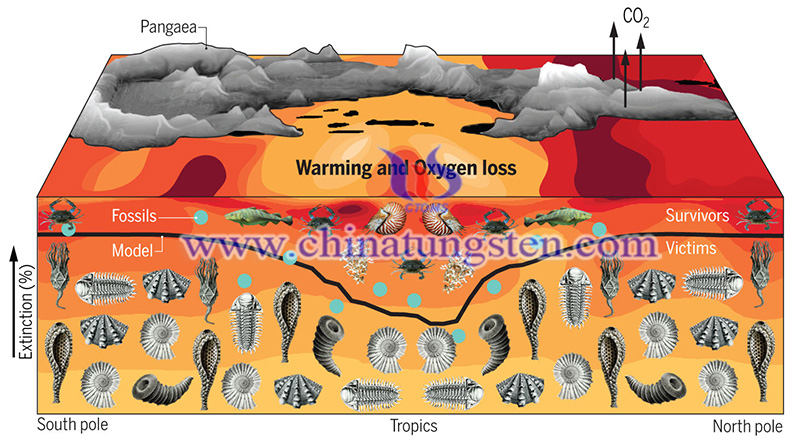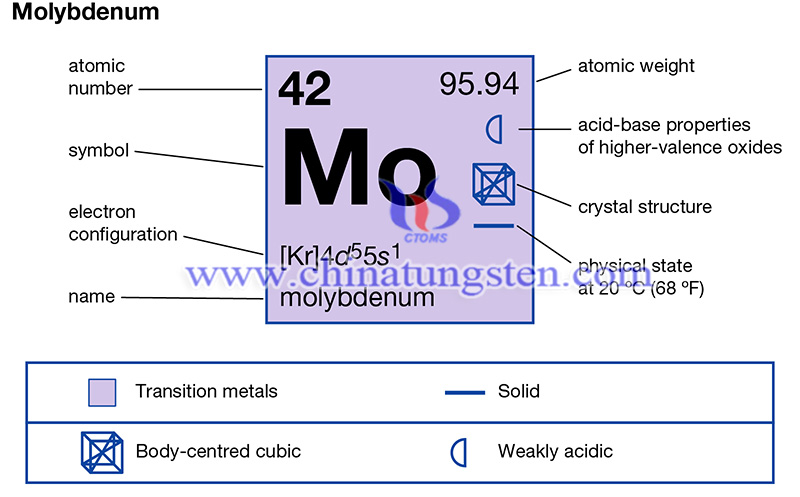Analyzing Molybdenum and Iron Elements, Marine Extinction or Caused by Oxygen Deficiency
- Details
- Category: Tungsten's News
- Published on Thursday, 30 April 2020 19:54
Through analyzing molybdenum, iron, uranium, vanadium, and other elements that are very sensitive to redox, researchers jointly conducted by Chinese scientists with the Nanjing Institute of Geology and Palaeontology of the Chinese Academy of Sciences and researchers from the United States find the oxygen deficiency may be the cause of the largest mass marine extinction in 252 million years ago.

There have been five known mass extinctions in the history of Earth. The mass extinction of the end of the Permian, 252 million years ago, wiped out more than 80% of marine life and most terrestrial life. This is also the worst blow to marine life in history. For decades, the scientific community has made many hypotheses about why extinctions occurred, including celestial collisions, ocean acidification, and extreme warming.
This time, the research team focused their study on a stratigraphic section in Changxing County in east China's Zhejiang Province, which was once an ancient ocean and records about half a million years of marine geological history before and after the marine extinction.

The researchers analyzed iron, molybdenum, uranium, vanadium, and other elements in the formation samples that were very sensitive to redox. The results showed that during the biological extinction, the ocean was in an oxygen-deficient environment, and the situation remained unchanged for some time after the extinctions. In addition, sulfur compounds commonly found in anoxic environments were found in the formation samples, which further indicated that the seawater at that time was in oxygen deficiency.
"After analyzing iron, molybdenum, uranium, vanadium, and other redox-sensitive elements in the formation samples. We think it is likely that geological events such as volcanic eruptions produced a large number of reductive materials, which lead the oxygen deficiency in the seawater. Eventually, most marine life died and caused serious marine extinction." Hua Zhang, a researcher with the institute in Nanjing and a leader of the research.

| Molybdenum Supplier: Chinatungsten Online www.molybdenum.com.cn | Tel.: 86 592 5129696; Fax: 86 592 5129797;Email:sales@chinatungsten.com |
| Tungsten News & Prices, 3G Version: http://3g.chinatungsten.com | Molybdenum News & Molybdenum Price: http://news.molybdenum.com.cn |



 sales@chinatungsten.com
sales@chinatungsten.com